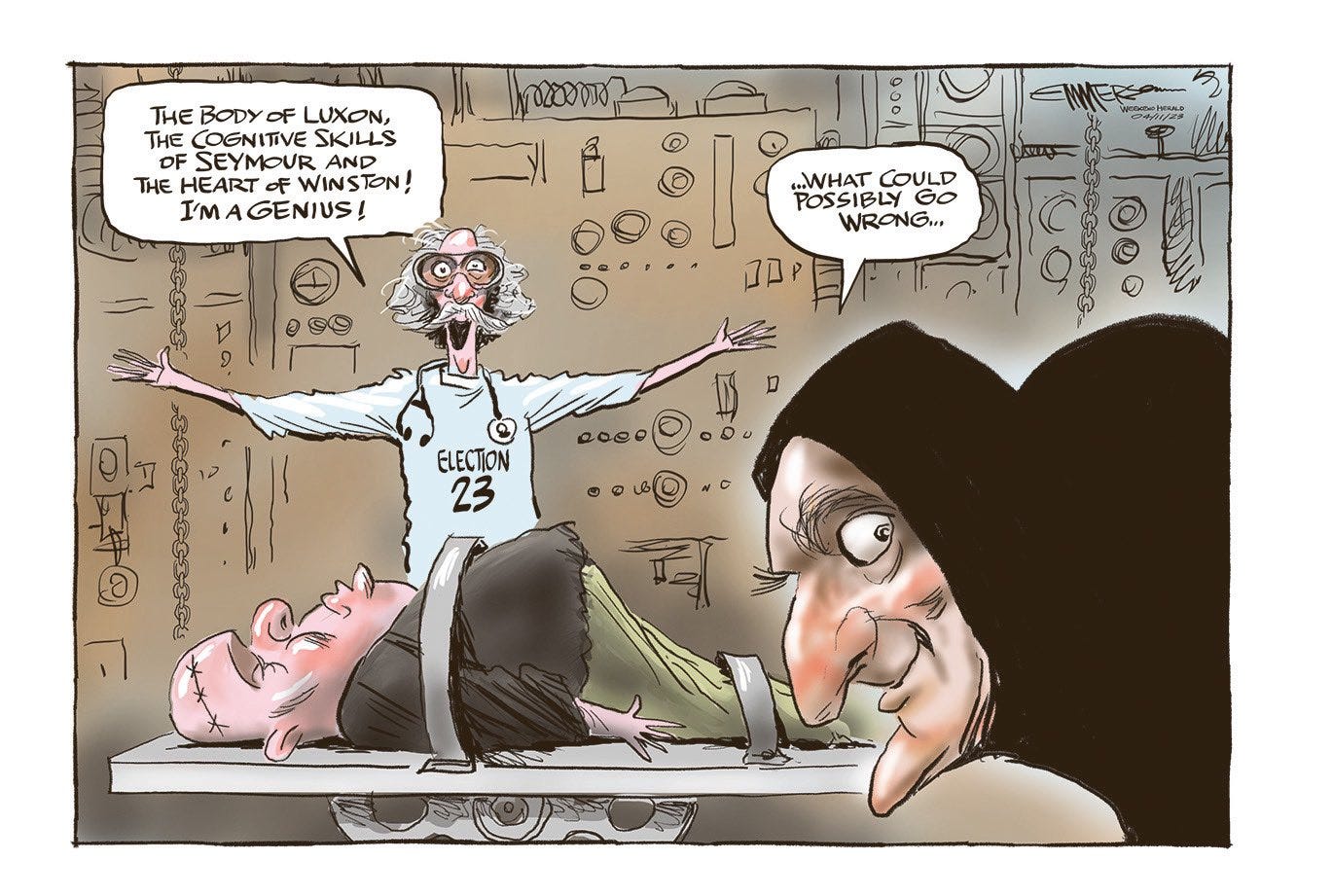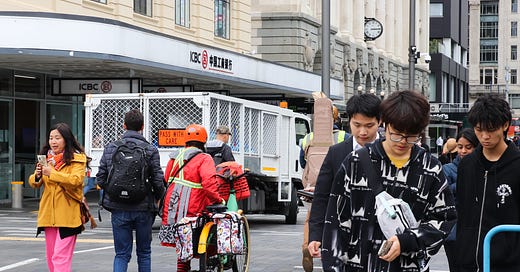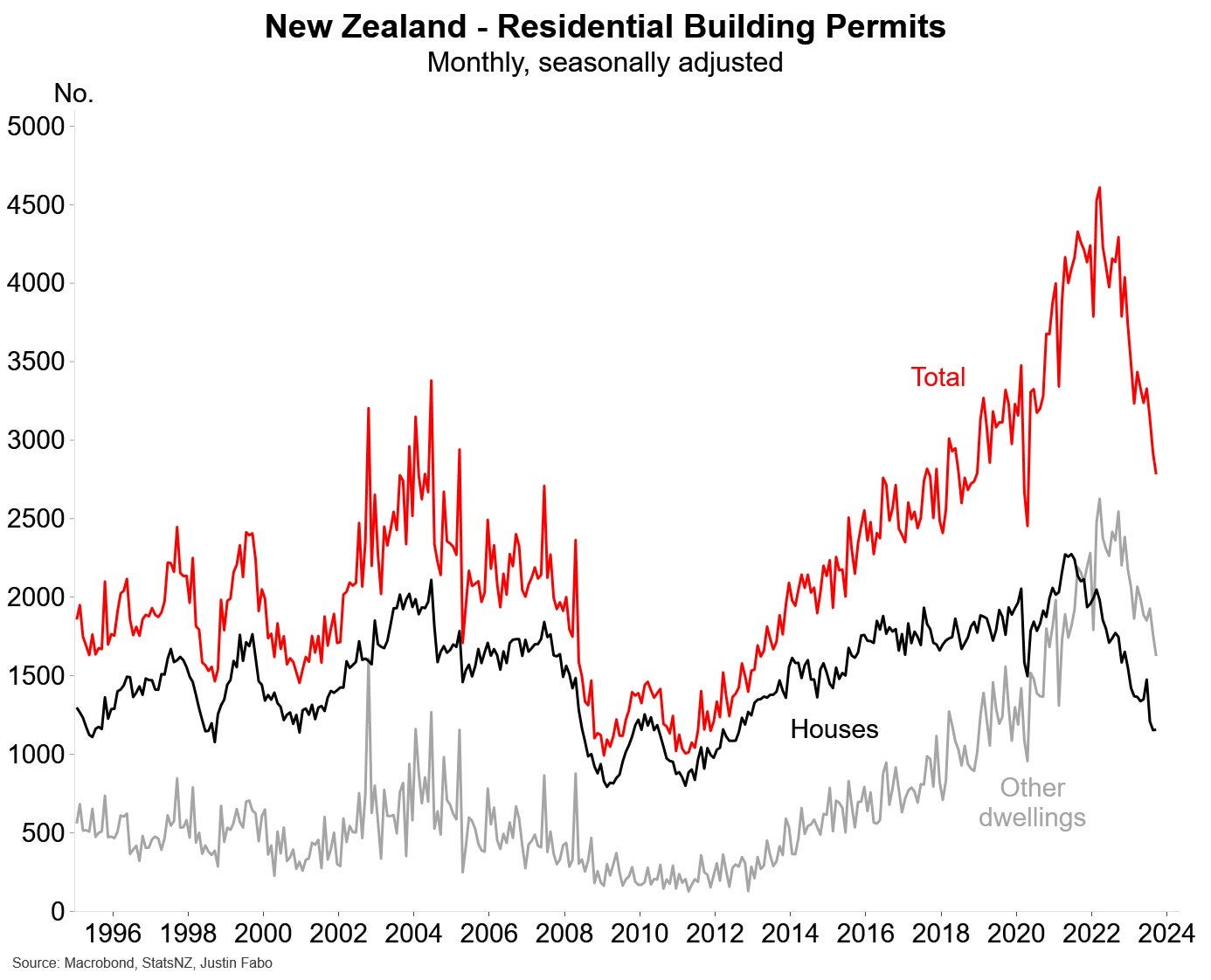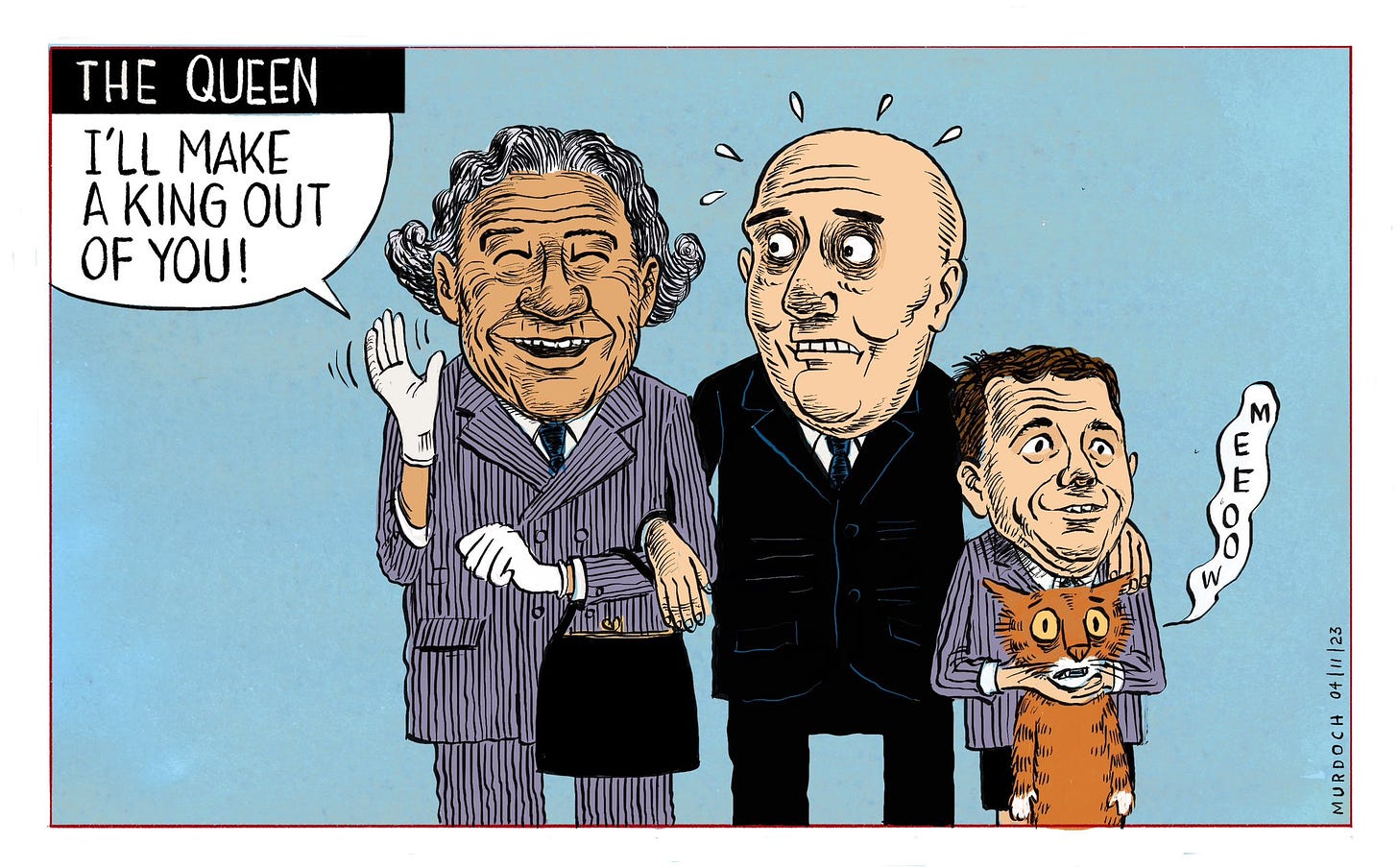TL;DR: The five things that mattered in Aotearoa’s political economy that we wrote and spoke about via The Kākā and elsewhere for paying subscribers in the last week included:
The Electoral Commission declared the final election results after counting special votes, including National (48) losing two election-night electorate seats to Labour (34), Te Pāti Māori (6) winning two more electorate seats from Labour (6), the Greens winning one more list seat (15), and ACT (11) and NZ First (8) unchanged;
the final results mean National-ACT on 59 (soon to be 60 after National wins Port Waikato) won’t have the required 62 seats needed to have a majority in the 123 seat Parliament, so will need the support of NZ First leader Winston Peters, as have four coalition Governments over the last 26 years;
US long-term interest rates fell sharply in the last 48 hours after the US Federal Reserve appeared to indicate it could stop hiking interest rates, which will take some pressure off mortgage rates here;
The Reserve Bank warned in its Financial Stability Report of more financial stress among younger borrowers who took out big mortgages from 2020 to 2022, but said bad debts and forced sales remain very low, reinforcing that the most stress for households is among Aotearoa’s hundreds of thousands of mostly young poor renters, who are the most stressed in the world (Thurday’s Chorus); and,
National appears set to push councils to move their water assets off their balance sheets in a very similar way to Labour’s Three Waters plan, just without the co-governance and as much compulsion, but still with the flawed idea that somehow off-balance-sheet borrowing is actually better for taxpayers and ratepayers in the long run than facing up to the fact that higher taxes, charges and public debt are needed to fund fast population growth (Wednesday’s Chorus).
What we talked about on ‘The Hoon’ on Friday night
In this week’s podcast above of the weekly ‘Hoon’ webinar for paying subscribers at 5pm on Friday night:
5.00 pm - 5.10 pm -
and Peter Bale opened the show with a discussion about the election result and why might happen next with interest rates and house prices.5.10 pm - 5.20 pm - Bernard, Peter and
talked about a new paper from James Hansen warning that warming could exceed 1.5 C by the end of the 2020s and 2 C by 2050, and Treasury’s advice that emissions credits needed to bought overseas to achieve our Paris targets could cost up to $26 billion, but are not included as a liability in the Crown accounts. Wednesday’s Chorus.5.20 pm - 6 pm -
and talked about the Israel-Hamas war and the election results.
The Hoon’s podcast version above was produced by Simon Josey.
This is a sampler for all free subscribers. Thanks to the support of paying subscribers here, I’m able to spread the work from my public interest journalism here about housing affordability, climate change and poverty reduction around in other public venues. I’d love you to join the community supporting and contributing to this work with your ideas, feedback and comments.
Chart of the week
Not what we need when our population grew by 110,000 last year
Other places I appeared this week
I interviewed former Z Energy CEO Mike Bennetts for When The Facts Change via The Spinoff about his new book on leadership.
We also produce this 5 in 5 with ANZ daily podcast and Substack for ANZ Institutional in Australia, which you can sign up to via Spotify and Apple and Youtube for free.
Cartoons of the week
Kings and Queens
The MMP Frankenstein

Ka kite
Bernard















Share this post